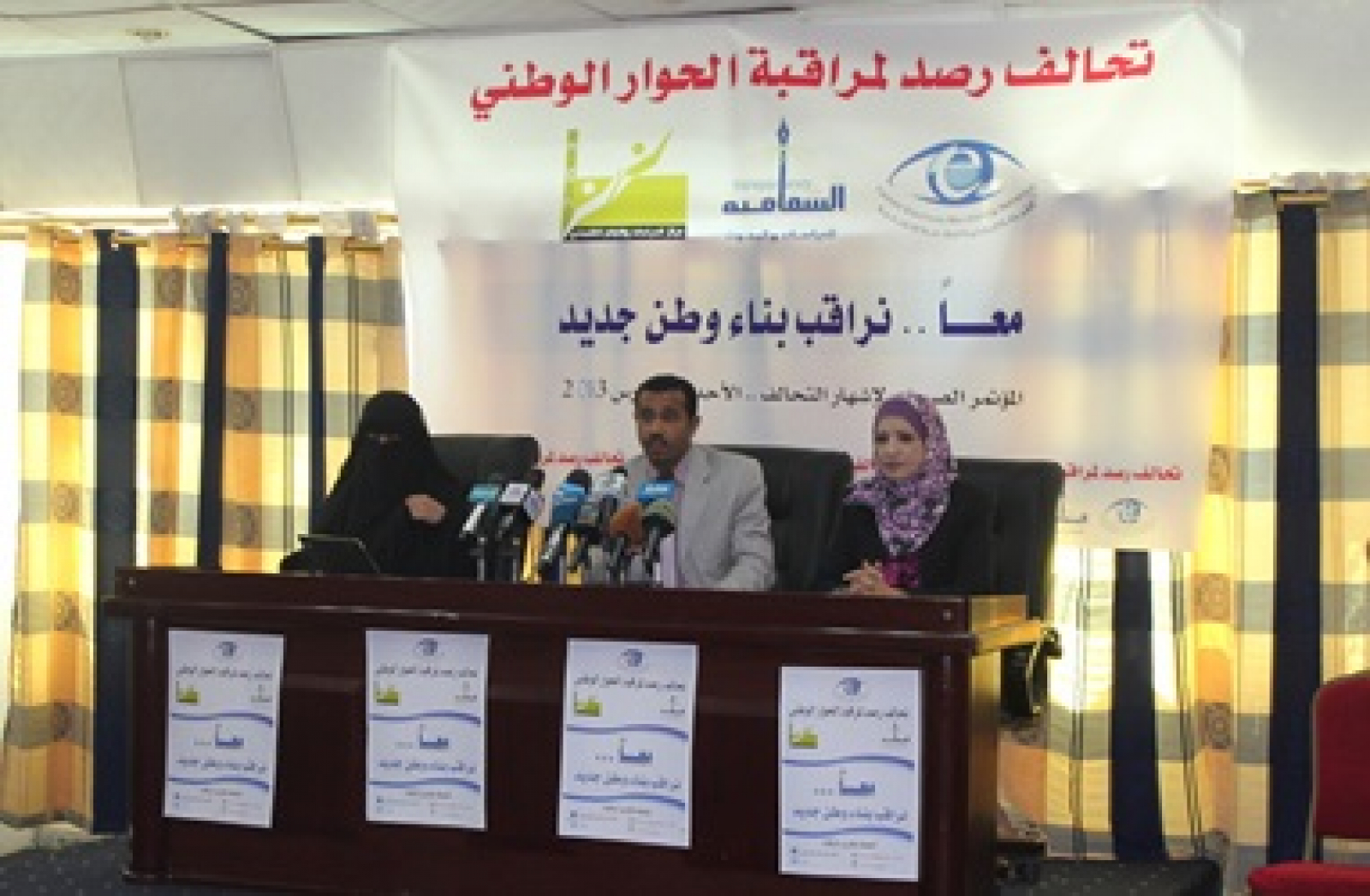
SHARE
With Yemen’s National Dialogue Conference (NDC) well underway, 565 Yemenis from all segments of society are working together to develop a new government and move away from the country's long history of corruption and authoritarian rule. The National Dialogue is a critical part of Yemen’s two-year transition from the 33-year rule of President Ali Abdullah Saleh to national elections to be held next year.
To make sure the delegates are following the conference’s internal by-laws, attending the sessions and conducting themselves in an open, transparent manner, a local organization called the RASD Coalition for Monitoring the National Dialogue has brought together a diverse group of civil society organizations with experience in observing elections and voter registration processes to monitor the dialogue process and promote a culture of transparency and openness that has been absent from Yemen’s political life.
“RASD is here to be the eyes of the Yemeni people, to watch the conference and to inform the public,” said Ilham AbdulWahab, the head of the Transparency Center for Studies and Research, a nonprofit organization dedicated to human development and transparency, and a coalition member. “We are here to make the process more transparent.”
RASD, which means “monitoring” in Arabic, was created in early March as a nonpartisan, independent monitoring organization that grew from a long-term partnership between NDI and the Yemen Elections Monitoring Network (YEMN), an internationally recognized organization comprised of six Yemeni civil society organizations. RASD also includes the Transparency Center and the Studies and Economic Media Center, a civil society organization dedicated to improving economic transparency in the public and private sectors.
The NDC, a six-month political conclave in the Yemeni capital of Sana’a, is a key benchmark in the 2011 Gulf Cooperation Council agreement that sets out the parameters for Yemen’s political transition to a more open and democratic society. In the coming months, the NDC will focus on how to address several key challenges, such as how to resolve longstanding tension with the South, reorganize the military and rebuild the state. Delegates to the NDC are drawn from both established political parties and independent activists with quotas in place to ensure the inclusion of youth, women and Southerners, who have had a tenuous relationship with the rest of the country since the north and south were unified in 1990.
“Our report shows that many voices not heard in the past have a seat at the table and are now part of building Yemen’s future,” said Nabila al-Wadeai, head of YEMN and a member of RASD.
In its first report, RASD credits the NDC with launching on time and recognizes the delegates for successfully achieving a quorum for the opening plenary sessions. Delegates maintained, according to the coalition, an 86 percent average attendance rate during the first plenary session that lasted from March 18 to April 3. RASD also cited the increasing transparency of the dialogue through live television broadcasts of all plenary sessions and information posted on the NDC Facebook page.
The report did raise several concerns about irregularities in the appointment of delegates to some of the nine issue-oriented Working Groups, which are responsible for preparing recommendations on some of Yemen’s most contentious political issues. According to RASD, the Presidium, which supervises the Working Groups, did not adequately “take into account the specialization and the skills of its members…during the selection process of the working groups’ members.” This, they said, is making the Working Groups inefficient. However, they did commend delegates for appointing both a woman and a youth to the leadership of each Working Group.
RASD also raised concerns that irregularities are not being referred to the NDC’s Standards and Discipline Committee, which addresses violations and grievances.
In the coming months, RASD will release more reports on the progress of the Working Groups, while the coalition continues to monitor the overall transparency of the National Dialogue Conference.
The coalition receives funding from the U.S. Agency for International Development (USAID) through an NDI subgrant awarded to the Al Aman Association for Blind People Care, a member of YEMN.
Read RASD's first report in English or Arabic.
Read RASD's press release announcing the publication of the first report in English or Arabic.
Published June 25, 2013


